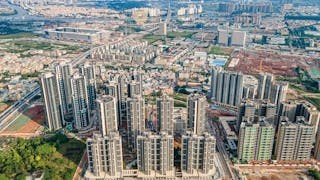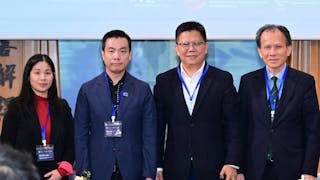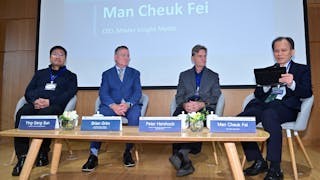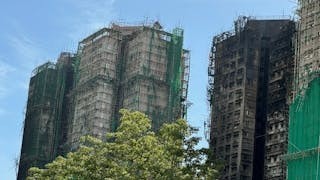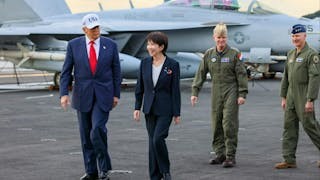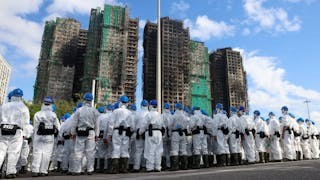今年11月8日,港澳事務辦公室主任夏寶龍在深圳與一群香港商界人士會面,傳遞了重要訊息,事件對香港特區不斷變化的政商關係產生了重大政治影響。
首先,夏肯定了工商界對香港經濟繁榮和國家現代化的重要貢獻,他說香港工商界秉承光榮的「愛國傳統」,在適應香港和國家發展方面展現勤奮、進取和高度靈活的態度。
其次,夏指出,習近平主席於今年7月30日回信勉勵一批祖籍寧波的香港企業家,鼓勵他們發揚先輩們勇於創新的「優良傳統」,捐資助學,為家鄉建設和國家發展添磚加瓦,用實際行動詮釋了薪火相傳的愛國心,為中華民族偉大復興貢獻力量。香港寧波商人因為對中港經濟發展的貢獻受到稱許,其中包括已故港商包玉剛和邵逸夫等。事實上,習主席在浙江工作期間,曾多次表達對海外華商的關心和期望。
中國好 香港好 港商亦受惠
習主席並補充,香港工商界和企業家應該認識到國家、自身和香港之間的互動關係。換句話說,中國好,香港便好,連帶港商亦受惠。
第三,夏向香港商界精英指出,香港特區正面臨內外的新挑戰,因此,他們應該學習習主席致寧波工商界人士的信函精神,利用一國兩制的優勢,以實際行動詮釋愛祖國、愛香港、支持特區政府、為香港民生作出更多貢獻,說好香港故事,深化香港科技轉型和改革,鞏固香港國際金融、航運和貿易中心的地位。
第四,夏呼籲港商以發展旅遊生態的新方式,激發商界人士的創造力和創新思維。他補充,香港海岸線長1180公里,有263個小島,可作為海上遊覽、娛樂、度假、文化遊覽的旅遊風景點。
第五,港商要對外發揮國際人脈優勢,組織國際交流活動,邀請外國人到港考察,充分發揮香港特區的動能與魅力。
夏主任的重要講話可以看作是習主席7月致寧波企業家信的延伸,當時習主席強調香港企業家要發揮所長,融入國家改革發展。
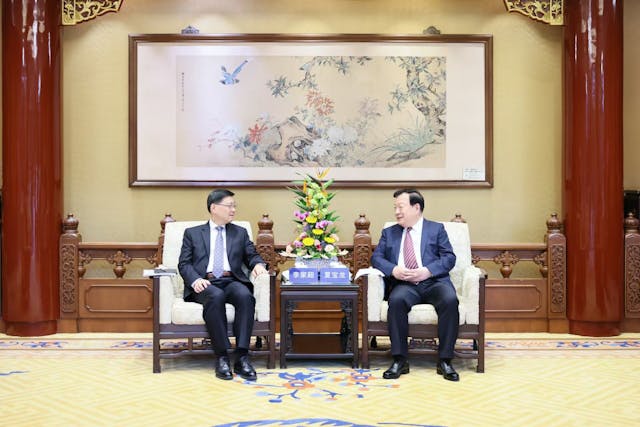
香港當務之急是發揮貢獻者作用
自習主席回覆香港寧波商界的重要信函後,香港中華總商會舉辦了研討會,邀請中聯辦主任鄭雁雄、香港財政司司長陳茂波、創新科技及工業局局長孫東出席。鄭表示,習主席的回信飽含深情,意義重大,香港的當務之急是如何把握好貫徹三中全會精神,香港可以發揮利益相關者、開拓者、貢獻者、創新者的作用。
習主席致函寧波工商界人士後,香港行政長官李家超立即向習主席致謝,並稱深受習主席的信函所鼓舞。他表示,特區政府將繼續團結香港愛國力量,鼓勵他們發揮所長,為復興祖國貢獻香港一分的力量。
李家超也出席了夏總在深圳會見香港商界人士的活動,以此呼籲香港商界為香港和內地的發展作出貢獻。他說,夏呼籲企業家「想想香港的整體利益……當然,企業家可以做出自己的決定,但關鍵是,「你有多愛香港?」
OPINION – Changing Government-Business Relations in Hong Kong
An unprecedented meeting between Xia Baolong, the Hong Kong and Macau Affairs Office (HKMAO) Director, and a group of Hong Kong businesspeople in Shenzhen on 8 November 2024 had significant political implications for the changing government-business relations in the Hong Kong Special Administrative Region (HKSAR).
Xia’s meeting with 29 Hong Kong businesspeople carried important messages.
First, he affirmed the important contributions of Hong Kong’s businesspeople to not only the economic prosperity of Hong Kong but also China’s national modernisation – a “glorious” and “patriotic tradition” of Hong Kong’s business sector. The Hong Kong businesspeople, according to Xia, demonstrated a high degree of diligence, a progressive attitude, and flexibility in their adaptation to Hong Kong and China’s development.
Second, Xia pointed to a letter written by President Xi Jinping to a group of Ningbo businesspeople in Hong Kong on 30 July 2024, when the President encouraged them to promote the “excellent tradition” of their ancestors in undertaking creative innovation, making donations to support school construction and development in China, taking concrete action to integrate into their motherland’s reforms, helping the Chinese style of modernisation to build up its “bricks,” and contributing to the Chinese renaissance. As such, President Xi added, the Hong Kong businesspeople and entrepreneurs should recognise the triangular relations between the nation’s development, their own development, and Hong Kong’s development. In other words, if China’s development is good, then Hong Kong’s development is good, as are the enterprises of the Hong Kong businesspeople.
Third, Xia told the Hong Kong business elites that the HKSAR is encountering new challenges internally and externally. As such, they should learn the spirit of President Xi’s letter to the Ningbo businesspeople by utilising the advantages of the “one country, two systems,” taking concrete action to “interpret” their love of China and Hong Kong, supporting the HKSAR government, contributing more to Hong Kong’s livelihood, protecting Hong Kong’s good image, making Hong Kong develop its “new space,” deepening the technological transformation and reforms in Hong Kong, and consolidating Hong Kong’s status as an international financial and monetary centre, maritime centre, and trading centre.
Fourth, Xia attempted to stimulate the creativity and innovative mindset of the businesspeople through an appeal to consider new ways of developing the ecology of Hong Kong’s tourism. He added that Hong Kong’s coastline is 1,180 kilometres long with 263 small islands, which can be utilised as tourist and scenic spots for maritime cruises, entertainment, vacations, and cultural visits.
Fifth, externally speaking, the Hong Kong businesspeople should develop their advantages of having international networks, organising international exchange and activities, inviting foreigners to come to inspect Hong Kong, and realising the vitality and charisma of the HKSAR to the full extent.
Xia’s important speech could be seen as an extension of President Xi’s letter to the Ningbo businesspeople in July, when the Chinese President emphasised that Hong Kong entrepreneurs should integrate themselves into national reforms and development by “giving full play to their strengths.” Ningbo businesspeople in Hong Kong have been famous for their contributions to the economic development of Hong Kong and the mainland, including the late Pao Yue-kong and the late Run Run Shaw.
Xi’s letter was a reply to the descendants of the Ningbo entrepreneurs, who had written to him on the support for China’s development and their commitment to the motherland’s modernisation drive. President Xi in his letter spoke highly of their patriotism and contribution to China’s development through innovation and educational donations. When Xi Jinping worked in Zhejiang province, he had expressed his care and expectations on the overseas Chinese entrepreneurs on numerous occasions.
After President Xi wrote the important letter to the Ningbo businesspeople in the HKSAR, the Hong Kong Chinese Chamber of Commerce held a seminar in which the Liaison Office Director, Zheng Yanxiong, attended, together with Hong Kong’s Financial Secretary Paul Chan and Secretary for Innovation, Technology and Industry Sun Dong. Zheng remarked that President Xi’s reply was affectionate, that Hong Kong’s top priority was to implement the spirit of the Third Plenary Session of the Communist Party of China, and that Hong Kong could play the role of a stakeholder, pioneer, contributor, and innovator.
Immediately after President Xi’s letter to the Ningbo businesspeople, Hong Kong Chief Executive John Lee expressed his gratitude to the President and added that Xi’s letter was deeply encouraging and inspiring. Lee said the Hong Kong government would continue to unite the patriotic forces in the HKSAR and encourage them to fully utilise their expertise to develop the country and to enhance Hong Kong’s contribution to its motherland’s rejuvenation.
John Lee also attended Xia’s Shenzhen meeting with the Hong Kong businesspeople – a gesture of making a similar appeal to the Hong Kong businesspeople to contribute to the development of both Hong Kong and the mainland. He said that Xia’s appeal to the entrepreneurs to “think of the overall good of Hong Kong … And of course, enterprises can make their decisions, but the key point is, how much you love this place” (Hong Kong government’s news, 12 November 2024).
President Xi’s letter to Ningbo businesspeople and Xia’s follow-up meeting with them in Shenzhen together with John Lee had tremendous significance for the changing government-business relations in the HKSAR.
原刊於澳門新聞通訊社(MNA)網站,本社獲作者授權轉載。(原文按此)







